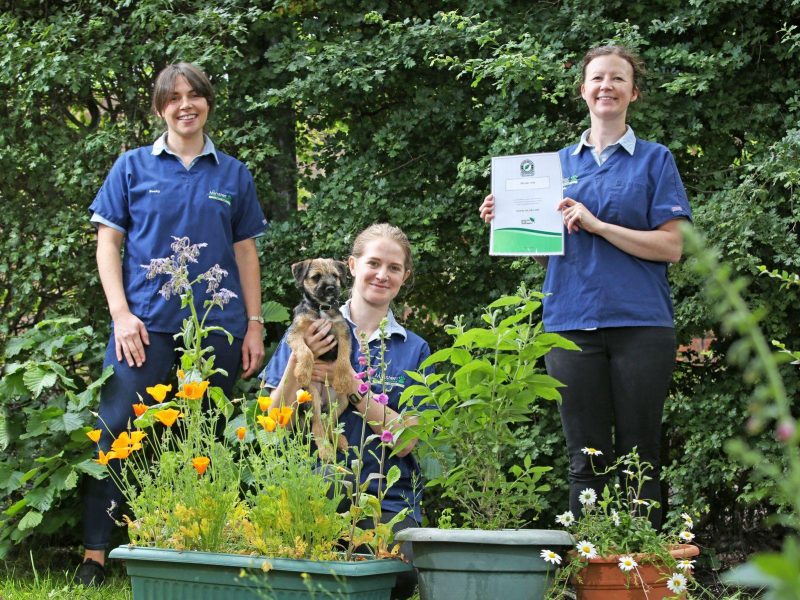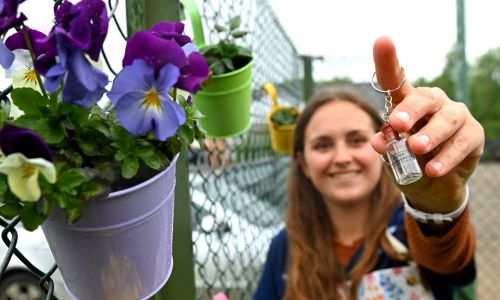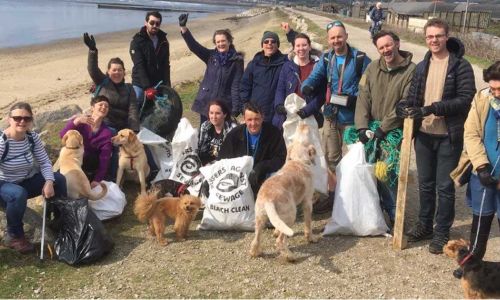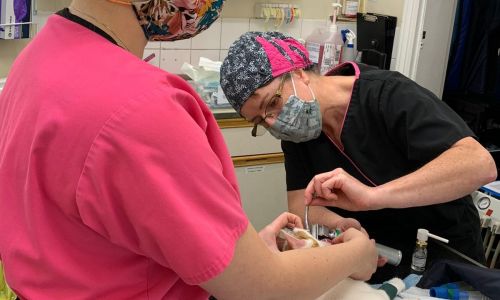Case Study: The Minster Veterinary Practice
Becky Sedman
As we adjusted to life during a global pandemic, we were reminded how fragile our planet is becoming as a result of human activity. The mountains of PPE opened our eyes to the problem of plastic pollution and made us evaluate the impact that clinical work has on the environment. But rather than being overwhelmed by it all, the team at Minster decided to create something positive out of our ‘new normal’. We embarked on our sustainability journey as a practice using the framework and support from Investors in the Environment, and inspiration from the Vet Sustain Checklist. After all, we figured that as veterinary professionals, we can’t protect animals without looking after their habitat.
Green Group
We had 21 people sign up to our Green Group, which showed just how much the team cares about doing our bit for the planet. After some initial brainstorming sessions, collectively we came up with some fantastic ‘action plans’ for how we can go green.
Carbon footprinting
We started by calculating our carbon footprint by collecting a year's worth of data on electricity, gas, water, and isofluorane use as well as work vehicle mileage, waste production and paper use. As a six site practice with a 24-hour hospital, we generate 95 tonnes of CO2e gases each year. The average human living in the UK has a carbon footprint of 13 tonnes of CO2e a year. Our main impacts were gas heating, electricity and iso use but we also produce a huge amount of waste as a healthcare provider. Understanding where our main impacts are helped us to shape our action plans to reduce them.
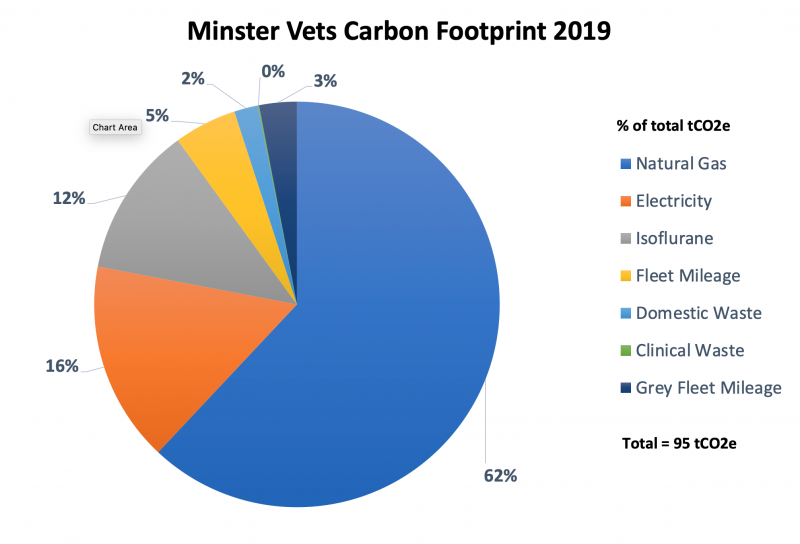
The carbon footprint of Minster Veterinary Practice in 2019
Given that gas use for heating made up 62% of our emissions, and electricity 16%, we realised that reducing this is perhaps the single biggest thing we could do for the planet. To reduce our energy use we took the following actions:
We performed a lighting audit and replaced 70% of lightbulbs with LEDs and motion sensors
Using ‘switch off stickers’ and encouraging people to switch off lights and equipment after use (people say that behaviour change can reduce electricity use by as much as 8%)- we are definitely guilty of leaving the CT scanner/ ultrasound machine etc on for longer than it is needed!
Using an urn rather than kettle
Switching to a renewable energy tariff through VetPartners
Installing Radfleek radiator covers to reduce heat loss
Adjusting the heating and air con settings to a more efficient temperature
Switching off the radiators in rooms not in use
Engaging the whole team is the key to success, so we made sure to communicate all of the positive steps taken via email or newsletter to inspire each other and be proud of what we have achieved. We did a ‘My Planet Pledge’ campaign on Earth Day and created some ‘Green Pet Ownership’ resources for our clients. Our website has its own sustainability section! Going forwards, we hope to arrange some low-flow anaesthesia CPD for the team and perhaps organise a litter pick up.
Water use
We also took the following steps to reduce our water use:
Installing a water butt to collect rainwater for watering the plants
Installing cistern displacement devices in non dual flush toilets
Using Sterilium to scrub up prior to surgery
The washing machine only gets run on a full load
"Engaging the whole team is the key to success, so we made sure to communicate all of the positive steps taken via email or newsletter to inspire each other and be proud of what we have achieved."
Reducing waste
Waste production is so excessive in clinical practice and not only contributes to pollution but also resource depletion. To reduce our waste production we implemented the following actions:
- Using 4 TerraCycle streams provided by VetPartners: PPE, flexible plastics, blister packs and pet food pouches
- Recycling paper, cardboard, tins and plastics through the local council
- Printed waste segregation posters and implemented a colour coded bin system
- Reduced the number of clinical waste bins and did some in-house training on what categorises as clinical waste to reduce the amount that goes for incineration
- Using a water distiller to reduce the amount of single use plastic bottles bought in
- Replacing plastic dispensary bags with paper, and plastic bottles with glass bottles
- Buying a reusable Bair hugger
- Buying milk in glass bottles from the milkman
- Buying reusable surgical drapes, kit drapes, hats and gowns
- Buying domestic cleaning products in bulk and creating an in-house ‘refill station’. We chose eco-friendly products which have not been tested on animals. We refill smaller bottles, and this also reduces the number of trips to the shops required.
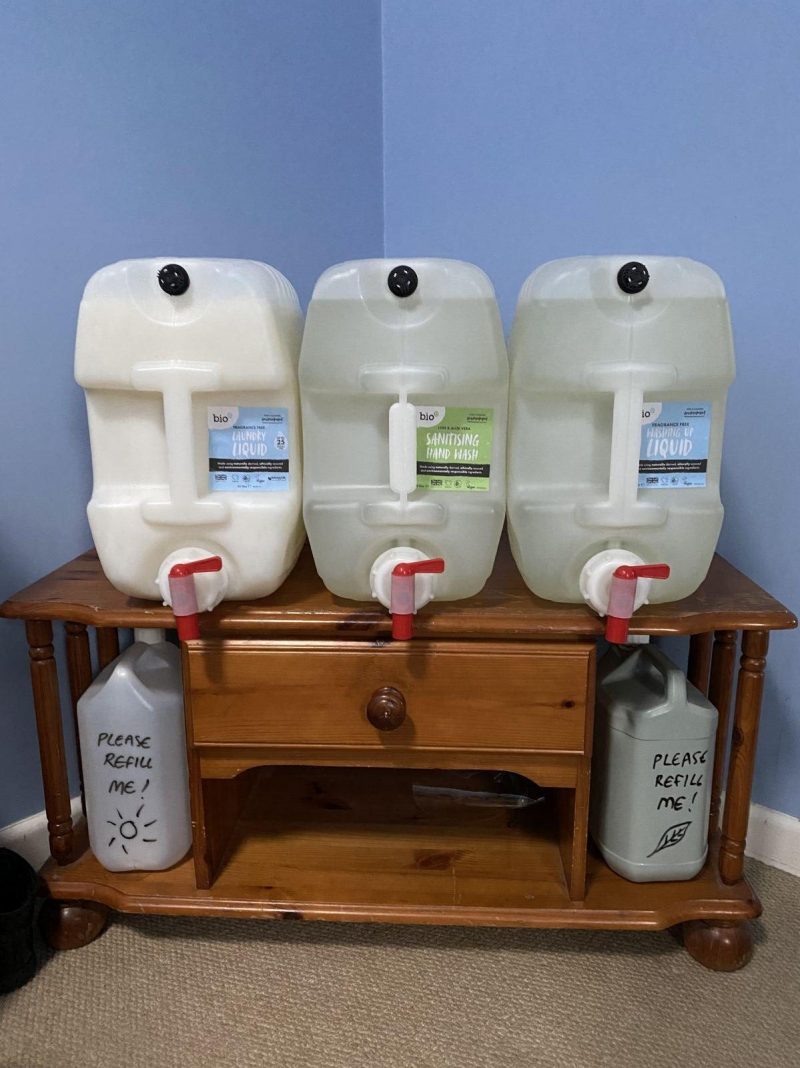
The ‘Refill Station’ with Bio-D cleaning products.
Resource use
A big part of reducing our waste production is cutting down on paper use. We were going through 60, 000 sheets of paper a year at the start of our journey! Having a paper-free management system is the ultimate goal, but in the meantime we are focusing on prioritising electronic communications, printing double-sided, recycling paper where possible and re- using laminated record sheets. We also buy in FSC certified paper.
Supporting pollinators
As well as reducing our resource use, we have tried to make our outdoor spaces more wildlife friendly. We have planted flowers to attract pollinating insects, signed up to the BBVA’s ‘Bee Friendly Practice Scheme’ and put up bird feeders and bird boxes (which were hand-made by our Clinical Director from up-cycled wooden pallets) to try and improve biodiversity on site. We had some birds nesting within two weeks which were right outside the tearoom window! We would like to make our outside space an area for staff to relax in order to promote wellbeing, so are looking into buying some picnic benches made from recycled materials.
Travel
We performed a travel survey to understand the travel habits of team members commuting to work and created a Travel Policy to encourage low-carbon commuting options. We already have bike hoops in the car park, but we sent an email round to remind people about the cycle-to-work scheme and also bought a bike repair kit to have handy. The number of people travelling between branches each day has been reduced through sensible rota planning and we are looking into the possibility of purchasing an electric ambulance when our lease runs out.
Accreditation
We signed up to Investors in the Environment at the end of 2020 and were delighted to have been awarded our Silver award in 2021. It was the morale boost we all needed after a very sombre year, made extra rewarding given that it was a huge team effort! Not only did we feel good about ourselves for taking responsibility in the fight against climate change, but we also saved money, attracted positive feedback from clients and hopefully encouraged other practices to embark on their own sustainability journeys. We even did a charity raffle to celebrate our success, with a number of eco-friendly gifts kindly donated by ethical companies such as Cooper King Gin, Beebomb and Jen Gale - we raised an incredible £125 for the The Wildlife Trusts. Improving our sustainability in practice has led to so many positive benefits we never even anticipated- here’s to aiming for the Green award next!
